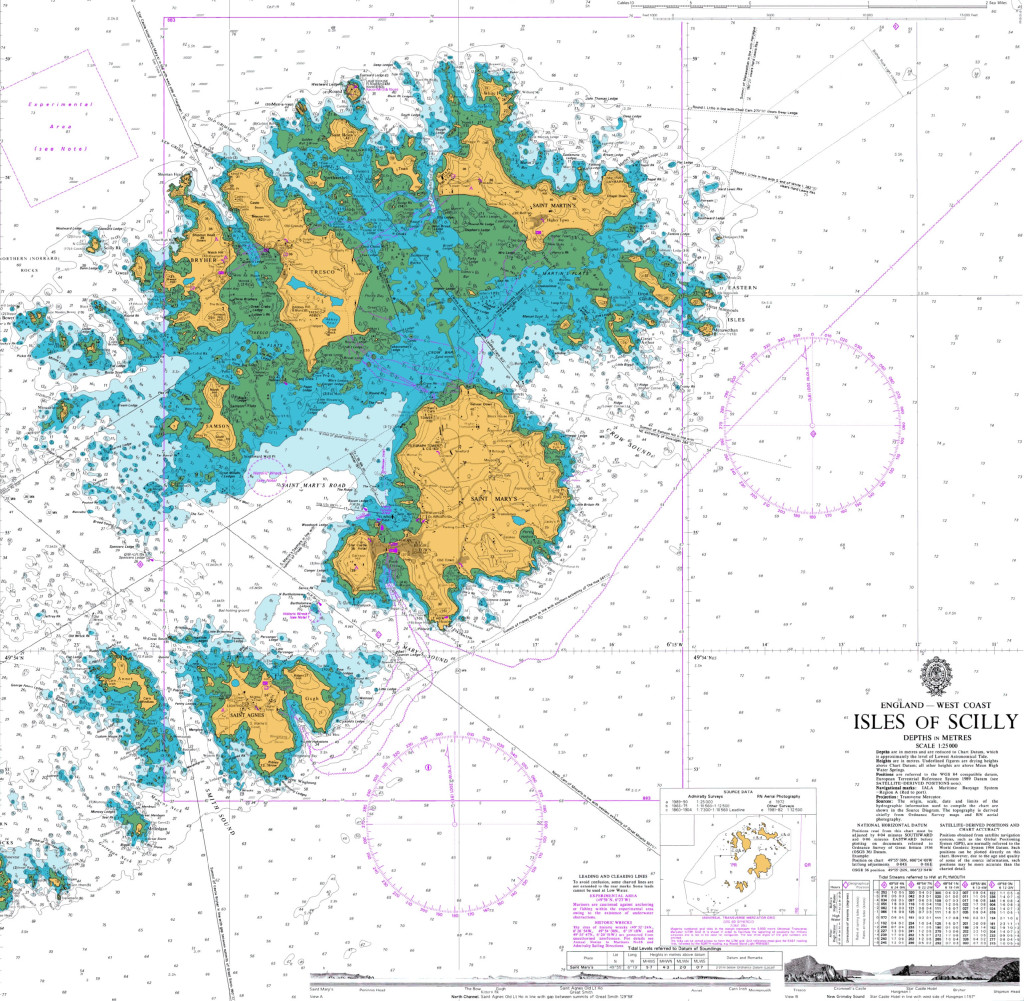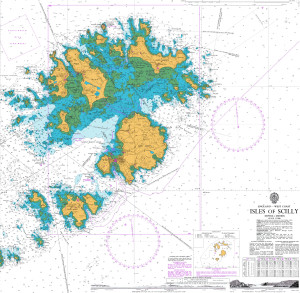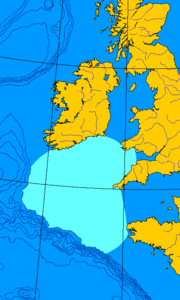Viatcheslav Koudriavtsev
Daily Express (UK)
The Daily Express is a well-known British tabloid newspaper. Together with its sister publications, The  Sunday Express and its online Express.co.uk, it has recently set a new record for the number of ‘might be Atlantis’ articles published, all with the byline of Callum Hoare. During the first three weeks of 2019, he has managed to produce four stories suggesting four different locations for Atlantis – Doggerland(a), Malta(b), Azores(c) and the Bahamas(d). But I did not have to wait long for the next regurgitation from Hoare, with another piece mined from a recent Amazon Prime documentary, where the Atlantis in the Canaries theory is reviewed (21.1.19)(e). I note that Hoare was also the author of similar BS Atlantis stories for another alleged UK newspaper, The Daily Star. The quality of research continues to be abysmal, citations are often years old, facts are mangled and quite misleading. Definitely ‘Fake News’.
Sunday Express and its online Express.co.uk, it has recently set a new record for the number of ‘might be Atlantis’ articles published, all with the byline of Callum Hoare. During the first three weeks of 2019, he has managed to produce four stories suggesting four different locations for Atlantis – Doggerland(a), Malta(b), Azores(c) and the Bahamas(d). But I did not have to wait long for the next regurgitation from Hoare, with another piece mined from a recent Amazon Prime documentary, where the Atlantis in the Canaries theory is reviewed (21.1.19)(e). I note that Hoare was also the author of similar BS Atlantis stories for another alleged UK newspaper, The Daily Star. The quality of research continues to be abysmal, citations are often years old, facts are mangled and quite misleading. Definitely ‘Fake News’.
Unfortunately, this outpouring of nonsense continued on in 2020. June 30th saw the ‘Express’ publish another article(f) by Hoare with an “Atlantis Located” headline. This gem begins by repeating the view of ‘expert’ Matthew Sibson, who advocates Rockall as the site of Atlantis and then switches to the opinions of Christos Djonis who claims the Aegean Sea as the home of Atlantis. According to Hoare, in this instance, Djonis refers to the research of Mark McMenamin of around 25 years ago who noticed on some Carthaginian gold staters of the fourth century BC that they had tiny engravings that he subjectively interpreted as rough maps showing both Asia and America and centred on Sardinia(g). This, according to Djonis, indicates the possibility that the Greeks may have had knowledge of America!
Djonis and Hoare were obviously unaware that in 2000, McMenamin was obliged to confirm that the coins in question were fakes(k) as revealed in his book, Phoenicians, Fakes and Barry Fell [1738].
Furthermore, Djonis is contradicted by the clear statement of Herodotus that the Greeks only knew three continents, Europe, Asia and Libya (Africa)(h). Finally, if Djonis thinks that Atlantis was located in the Aegean what has America got to do with his theory?
July 2020 saw Hoare pollute the Express with another ‘Atlantis Found’ piece, this time locating it off the coast of Cornwall(j). This story is a quarter of a century old and a few years ago its credibility and even the existence of the institution to which its original author, Viatcheslav Koudriavtsev, was supposed to belong to, was brought into question(i).
Hoare ended the year with another pathetic attempt(l) to revive interest in the Minoan Hypothesis as well as the failed claim that the Spanish Donana Marshes held the remains of Atlantis or Tartessos!
>In January 2021, he continued his recycling of old Atlantis claims, with the 35-year-old story of the submerged rock formation off Yonaguni in Japan(m). Later in the same month we were regaled with yet another “Atlantis Found?” headline(n), which led on to report that the remains of another submerged city had been discovered off the Greek island of Zakynthos. No direct link with Atlantis was claimed!<
(g) https://www.researchgate.net/publication/236000049_Cartography_on_Carthaginian_Gold_Staters
(h) Herodotus, Histories 4.42.
(i) https://shimajournal.org/issues/v10n2/k.-Hallerton-Shima-v10n2.pdf
Scilly Isles
The Scilly Isles are located southwest of Cornwall’s Land’s End in the Atlantic Ocean. The islands were more extensive before the end of the last Ice Age and their inundation following the melting of the glaciers undoubtedly produced numerous legends in the region of sunken cities and lost civilisations. Apparently, there was once a paved causeway joining some of the islands and according to an 18th-century report, it was then under 8 feet of water. Even earlier in the 3rd century AD, Solinus referred to the Scillies in the singular as insulam Siluram.
O.G.S. Crawford, who was the first Archaeology Officer with the British Ordnance Survey, was also the founder in 1927 of Antiquity which continues today. In its first edition(c) he wrote of the earlier Scillies as a single landmass and its relationship to the legend of Lyonesse(b).
 Some writers have identified the Scillies as the Cassiterides (Isles of Tin) referred to by Pliny the Elder. However, there are no known tin deposits on the islands, although it is possible that before the ocean levels rose ore deposits were accessible, similar to those in nearby Devon and Cornwall, but this inundation probably occurred before the technology existed to exploit its use.
Some writers have identified the Scillies as the Cassiterides (Isles of Tin) referred to by Pliny the Elder. However, there are no known tin deposits on the islands, although it is possible that before the ocean levels rose ore deposits were accessible, similar to those in nearby Devon and Cornwall, but this inundation probably occurred before the technology existed to exploit its use.
A popular view is that the mythical sunken land of Lyonesse was situated between the Scillies and Land’s End in Cornwall. This is often seen as a parallel with the Breton legend of Ys.
In more recent times the Russian Scientist Viatcheslav Koudriavtsev was convinced that Atlantis was located on the Celtic Shelf near the Scilly Isles. He specifically identified an underwater feature known as the Little Sole Bank, whose highest point is just 75 metres beneath the ocean’s surface. He had been promoting his theory since 1995 and eventually obtained official government permission to carry out explorations in the area, but he was unable to raise the necessary funds to carry out the operation.
In 2009, excavations on St. Agnes in the Scillies revealed a remarkable Bronze Age pottery sherd which seems to depict the earliest know image of a sailing boat ever found in the United Kingdom(a).
In 1651, the Netherlands declared war on the Scillies, a little detail that was forgotten until 1986, when a peace treaty was finally signed(d) !
(c) https://www.cambridge.org/core/journals/antiquity/article/lyonesse/37725F1992B3D4ADF36561E144227F11 (Jan. 2019 access restricted)
(d) https://en.wikipedia.org/wiki/Three_Hundred_and_Thirty_Five_Years%27_War
Koudriavtsev, Viatcheslav
Viatcheslav Koudriavtsev is a Russian scientist who is convinced that Atlantis was located on the Celtic Shelf near the Scilly Isles off Land‘s End. He specifically identifies an underwater feature know as the Little Sole Bank, whose highest point is just 75 metres beneath the ocean’s surface. He has been promoting his theory since 1995(a).
During the last Ice Age an extensive portion of the Shelf would have been exposed, as sea levels were significantly lower. Koudriavtsev has published his theory in detail on the Internet, where he discusses the interpretation of Plato’s text with particular emphasis on an Atlantic location for Atlantis. Accepting that Atlantis was a large landmass in accordance with Plato’s figures, he is certain that the Celtic Shelf offers the most likely solution to the location mystery. Apparently there has been no modern bathymetric survey of the area. Consequently he has sought permission from the British authorities to carry out a detailed investigation of the area. He was also seeking finance to fund the venture but apparently was unsuccessful and had to abandon his plans to search in his proposed location near the Scilly Isles.
Koudriavtsev summed up his hypothesis as follows:
“At the time when the last Ice Age ended, the rising level of the world ocean resulted in the submerging of a sizeable territory in the west of Europe (which is now known as the Celtic Shelf) and where the centre of a highly developed civilisation and of a powerful state was situated. This state (or a commonwealth of states) controlled the whole Atlantic coast of Europe (and maybe North Africa), a considerable part of the Mediterranean coast of Europe and Africa and, possibly, could also sail the territories along the Atlantic coasts of North Africa, North and Central America. Along with this state, there existed other states in areas with a mild climate, in particular, “Ancient Athens”, which entered into a coalition with other peoples of the Mediterranean to jointly resist the expansion of Atlantis. All the artefacts of these civilisations have either been irretrievably lost or are now on the bottom of the sea that is why they have never come to the notice of the modern archaeological science. Neither have had written records from that period preserved, and the earliest written recording of the events of that period was made at least a thousand years later, in Egypt, on the basis of the still remaining folk memory, but it was already very general in character and imprecise. It was pure chance that it came to the notice of Plato and was recorded by him in the dialogues Timaeus and Critias. Throughout the whole chain of the passing down of this narrative, distortions and inaccuracies have accumulated, which, coupled with lack of corroborating evidence from other sources and archaeological finds, has determined its present ambiguous status.”
In the decades since Koudriavtsev’s claim first appeared in the media, very little has happened. In fact, recently (Oct.2016), doubt has been cast not only on the credibility of Koudriavtsev, but the very existence of the institute he claimed to be associated with(b).
>Nevertheless, Callum Hoare, Senior Special Projects Reporter, decided to exhume the Koudriavtsev theory a quarter of a century after the original story broke(c) and now publish it in the UK’s Express!<
(a) https://www.subtleenergies.com/ormus/wg/atlan4_e.htm
(b) https://shimajournal.org/issues/v10n2/k.-Hallerton-Shima-v10n2.pdf
Also See: Celtic Shelf
Lyonesse
Lyonesse is a mythical land between Cornwall and the Scilly Isles that reputedly sank into the sea. Ancient maps indicate that most of the Scillies were united in Roman times(a) noted by Peter Stanier in his book[0997] about the region. Legend has it that it contained 140 temples. Mordred is said to have fought his final battle with King Arthur at Lyonesse. This ancient tale has been regularly linked with the destruction of Atlantis.
There is a parallel Breton legend of Kêr-Is (Ker-Ys in French).
A group of rocks called the “Seven Sisters” lies six miles (10 km) off Land’s End, the southernmost tip of Britain. According to legend, these rocks mark the site of a kingdom that once linked Britain to France. The site description fits in with the Cornish myth of the kingdom of Lyonesse – also known as the City of Lions. In the 5th century A.D., Lyonesse was inundated and disappeared beneath the sea. The legend has it that there was only one survivor. Since then, local fishers have caught pieces of buildings and other remains in their nets. They claim that these come from Lyonesse.
Henry Beckles Willson in a 1902 booklet[1427] claimed that land now lost, once extended from Land’s End to the Scilly Isles. Contrast that with a speculative map in Lucile Taylor Hansen’s book The Ancient Atlantic[572], which shows Lyonesse as a large landmass west of the Scillies. She also informed us that the island of Tresco, which today is roughly 2 miles long and a mile across at its widest, had a circumference of ten miles in 1538.
A team of Russian scientists were hoping to answer the two and a half thousand-year-old mystery regarding Plato’s Atlantis, with an investigation of the underwater ‘Celtic Shelf’ beyond the Scilly Isles. Viatcheslav Koudriavtsev, of the Moscow Institute of Meta-history, has used a re-interpretation of the classical Greek texts to locate the possible position of the fabled ancient lands. It is claimed that in the 1990s the British authorities were set to issue a six-week licence for the exploration of Little Sole Bank, a conical submerged hill lying only 50m below the surface approximately 100 miles south-west of the mainland, but apparently, due to a lack of funding, nothing has been heard of the project since.
>Paul Dunbavin offers a valuable overview of the history and mythology relating to the story of Lyonesse on his website(d) and in Prehistory Papers [1758].<
In 2012 the ‘micronation’ self-styled as the Principality of Lyonesse declared its ‘independence’(b)(c).
Also see: Micropatrology
(a) https://simple.wikipedia.org/wiki/Isles_of_Scilly
(b) https://lyonesse.weebly.com/
(c) https://shimajournal.org/issues/v10n2/k.-Hallerton-Shima-v10n2.pdf
>(d) Lyonesse – Lost | Paul Dunbavin (third-millennium.co.uk)<
Celtic Shelf * .
The Celtic Shelf in the North Atlantic is accepted as having had large areas, now under water, exposed during the last Ice Age when sea levels were far lower than today due to the enormous amounts of water contained in the glaciers that covered vast swathes of northern Europe and America.
A number of investigators have proposed that these exposed lands were  home to Atlantis. Stone Age artefacts have been discovered off the coasts of Britain in recent years demonstrating that man lived on a more extensive landmass at the end of the last Ice Age.
home to Atlantis. Stone Age artefacts have been discovered off the coasts of Britain in recent years demonstrating that man lived on a more extensive landmass at the end of the last Ice Age.
Seventy years ago F. Gidon proposed the Celtic Shelf as a location for Atlantis, but as he ascribed a Bronze Age date to the society, the Celtic Shelf would already have been inundated and since Atlantis had mountains, at least their peaks would have remained visible.
A leading advocate of a Celtic Shelf location for Atlantis is the Russian Viatcheslav Koudriavtsev, who for the past ten years has been promoting his view that a site near to the Scilly Isles was the location of Atlantis. Although he has received government permission to carry out explorations in the area it appears that lack of funding has thwarted his plans to attempt to verify his theory.
Dan Crisp has published(a) a discussion on various location theories and concluded that on balance Koudriavtsev was on the right track when he nominated the Celtic Shelf as the most likely location of Atlantis.
John Nichols has also written a long article identifying Atlantis with the Garden of Eden and placing it on the Celtic Shelf about a hundred miles off the coast of France, due west of Brest(b).
In 2016, Philip Runggaldier added his support[1166] for locating Atlantis on the Celtic Shelf, explaining its demise at the end of the last Ice Age was the result of a mega deluge that burst through an ice dam containing a glacial lake in the Irish Sea Basin.
(a) https://www.grahamhancock.com/underworld/CrispDanAtlantis.php?p=1
(b) https://jjswn35.wordpress.com/article/atlantis-eden-how-to-find-2vfxjftuay98o-9/
